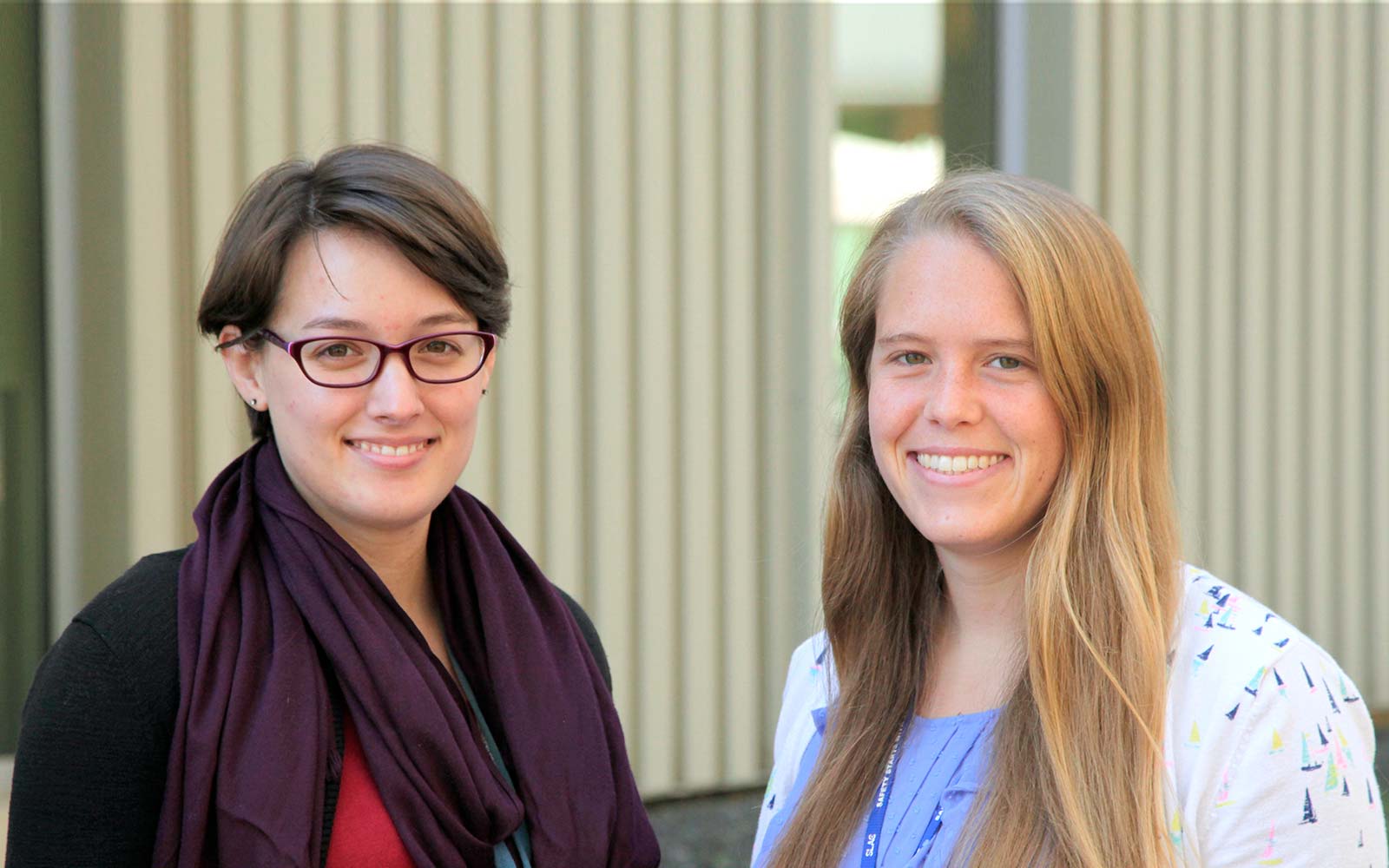Q&A: Diane Hascall and Margaux Lopez help build the world’s largest digital camera
What do you work on at SLAC?
Hascall: I work on the cryostat for the LSST camera – a refrigeration system that Rafe Schindler’s team is developing. To perform optimally, the camera’s image sensors, or CCDs, need to be very cold with very few temperature fluctuations. Our system will allow us to keep the temperature almost constant at minus 130 degrees Celsius. I do a little bit of everything for this project: I run the cooling system, perform tests and maintenance tasks, work on the system documentation and also do a bit of design work.
“It’s really fun to work at SLAC. Everyone here is very smart, and I’m learning so much by working with the team and other people.”
Lopez: I work with Tim Bond on the Integration and Test team. The camera and cryostat will be assembled in SLAC’s new clean room, where we’ll put the pieces together and test the performance of the camera system. I’m currently designing and building the fixtures that will hold the camera in place as well as allow us to rotate and roll it around during the assembly and testing process.
What excites you about this work?
Hascall: Simply being part of the LSST project is great. We’re building the largest CCD camera in the world, and completing this task will be a big accomplishment. But that’s only the beginning because with LSST we’ll be able to learn so much about space and see the universe in more detail than ever before.
Lopez: Another exciting fact is that not only scientists will benefit from our work because all of the telescope’s data will be available to the public. Kids could, for example, watch supernovae in action when they are in school. This will have a profound impact on them and on science education in general. I also wanted to become an astronaut when I was little, so in a way working on this project allows me to connect back to my childhood.
How has your experience at the lab been so far?
Lopez: Although I’ve only been here for a very short time, I’m already impressed with the team aspect of my work. We have a really great and cohesive team, and I really appreciated how supportive everyone was in bringing me up to speed on the project.
Hascall: It’s really fun to work at SLAC. Everyone here is very smart, and I’m learning so much by working with the team and other people. I also like how the SLAC environment is somewhat in between the academic and corporate worlds. It’s definitely very different from college in that projects are much more in flux and can expand or take different directions more frequently and much faster.
Click here for the full interview.
